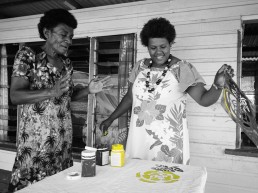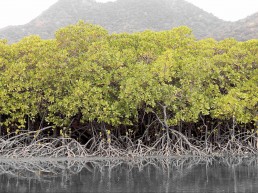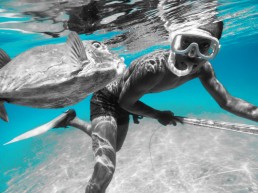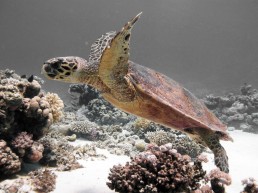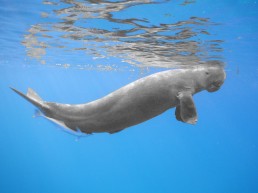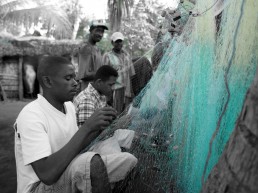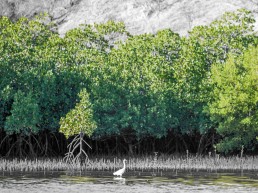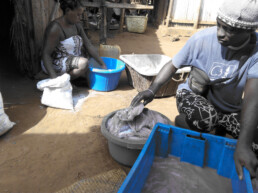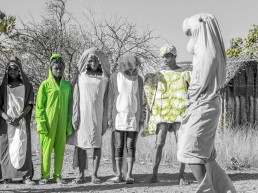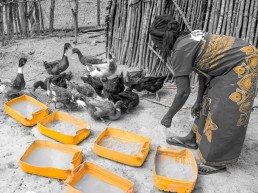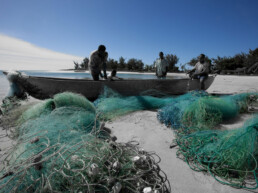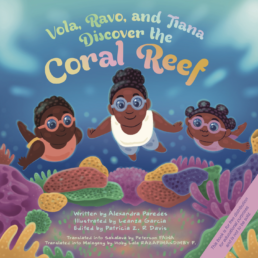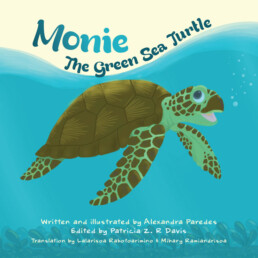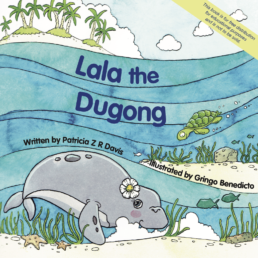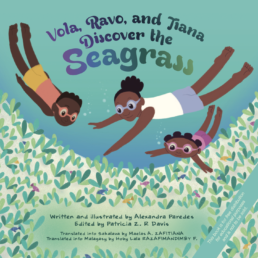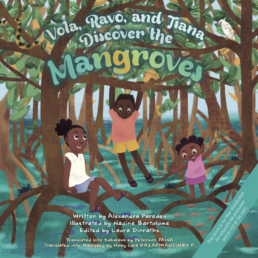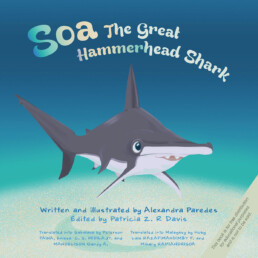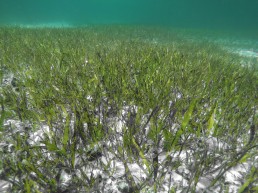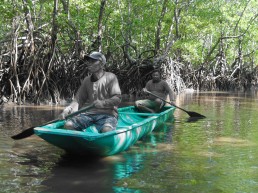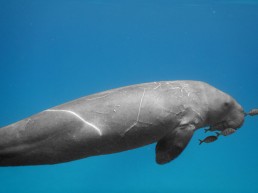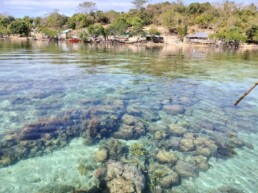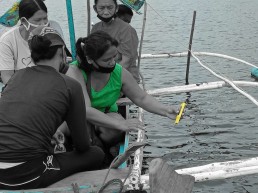C3 Fiji
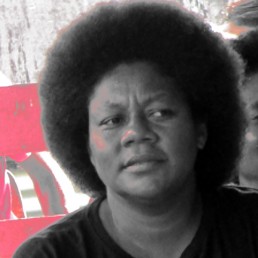
We have been witnessing the decreasing state of our marine resources due to overexploitation and unsustainable use of our natural resources.
With C3 Fiji’s intervention, the village of Qaranivai established an MPA in 2018 to revive and help conserve our marine ecosystems. [The] total area of this MPA is 16.55 hectares. It includes the mangrove forest which has an area of 2.94 hectares.
For just over a year, we have seen changes already which are a good sign that our plan was a success and that is to preserve and promote biodiversity, which will make our ecosystems healthier for our future generations.
Vasenai Dibale
Community Member, Qaranivai village, Dogotuki, Macuata
About
C3 Fiji began in 2010 on Kia island, located on the Great Sea Reef off the north coast of Vanua Levu.
The challenges faced by Kia islanders are representative of communities in remote tropical coastal regions today: deforestation, lack of reliable electricity and water, overfishing, exploitation of endangered species for international trade, coral bleaching, and an increase in storm surges and coastal erosion. In the face of this, C3 Fiji partnered with the Kian community to build awareness, capacity, and inspiration for environmental stewardship.
Today, the majority of houses have solar energy and fuel-efficient stoves. The community is also knowledgeable in habitat and fisheries monitoring, and MPA regulations. Furthermore, sustainable livelihoods have been successful, thanks to great input by local women. Screen printing, apiculture, handicrafts, and the establishment of village stores are all businesses that supplement incomes previously wholly dependent on fisheries.
Following the success on Kia, we extended our efforts to ten other communities across Macuata province. C3 Fiji is currently hard-pressed to keep up with demand, as more new communities request support for rural enterprise development, and MPA establishment and management.
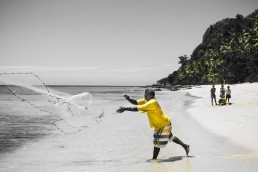
Commitment
C3 Fiji is truly community centred as its name implies. We’re not a NGO which comes and goes to rural communities in order to implement top-down projects conceived in costly offices in cities by development personnel. We’re grassroots, located in the community and all of our ideas come from the community and complement the country’s overarching sustainable development goals.
We have developed successful environmental stewardship models with proven impact. Our job is to adapt, replicate and upscale what we do to reach more and more communities and areas of critical biological importance.
We only promise to deliver effective, sustainable and impactful conservation and development at the best possible price. C3 Fiji can deliver at much lower cost than most NGOs because we are locally-based, locally-run and have hundreds of community volunteers, well-researched suppliers, and a policy of zero or minimal waste.
The international community must admit that conservation has not been successful to date. We are still losing hundreds of species and swathes of habitat each year. With limited funds and time, we must shift our paradigm away from neocolonial conservation approaches and waiting for data to inform decisions. Instead, we need to capacitate communities to manage and monitor key biodiversity areas with their own drive and commitment before it is too late.
It is also time for donors to take a good, hard look at value for money when it comes to future conservation investments. We must move away from an approach that historically supported short-lived outcomes with high administrative cost–one that, unfortunately, led to corruption and the external dependence of local institutions.
28
hectares (52.32 football fields) of trees planted
45
fish wardens trained and licensed
380
hectares (710 football fields) of locally managed marine areas including mangroves
550
mangrove seedlings in newly established nurseries
938
community members using fuel efficient stoves
1,462
community members benefitting from native tree reforestation initiative
1,500
households actively engaged in site-based conservation programmes
Over 1,500
Reef Rangers trained in 54 communities
5,600
people reached directly through our community outreach campaigns
36,000
trees planted
Subscribe
Receive updates on C3 Fiji's groundbreaking projects and initiatives.
Contact
C3 Fiji108 Nasekula Road, Labasa
C3 Fiji (Community Centred Conservation (Fiji) Limited), in accordance with the Companies Act, is registered as a non-profit organization in Fiji under the Registrar of Companies with Company Registration No. RCBS2014G3314.
C3 Madagascar
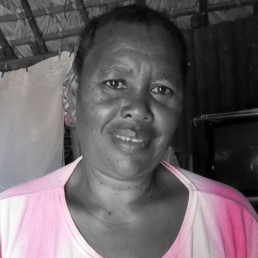
I am an active member of the LMMA in Ambolobozokely and I also play the role of advisor to guide and explain the rules to the community members.
By attending the various meetings organized by C3 in our village, I was convinced by the activities of their project and I decided to join. Also, I noticed that since C3's interventions, people are beginning to change their behavior and take more responsibility for the protection of the resources, for example, they participate in restoration activities or request for authorization to cut some wood in the forests (for needs).
Anjonjara Mora
Community Member and Advisor
About
C3 Madagascar started in 2009 in the far north of Madagascar, based in the town of Antsiranana.
The challenges faced in the north are similar to those faced by many remote tropical coastal regions today; deforestation, lack of reliable water and electricity supply, overfishing, exploitation of endangered species for international trade, coral bleaching and increasing frequency of storm surges and coastal erosion. C3 Madagascar partnered with the communities of Nosy Hara Marine Park to build awareness, capacity and inspiration for environmental stewardship. With most community members in our target region living on less than $1 per day, we first needed to address the drivers of poverty and environmental destruction.
Based on consultations, research and feasibility studies, we identified key healthcare, education and capacity building needs of each community and delivered services such as a visiting doctor, new school furniture and books and good governance, organisational capacity building and business training to local association so that people could have their basic needs addressed. Communities are now motivated to commit to Park management and monitoring along with the government agency, Madagascar National Parks, facilitated by C3. In the last two years fisheries infractions have dropped by 90% and there have been no dugong or sea turtle mortalities. Businesses including ecotourism and duck farming are flourishing today and also help deflect pressure off coral reefs and seagrasses.
Sadly, most conservation NGOs in Madagascar come in from outside with their own prescriptive approaches, which unfortunately usually fail long-term because of lack of local leadership and understanding the local context and complex and diverse cultures. We are proud to be locally-led and locally-governed and yet have the capacity to manage donor funds as any foreign NGO. We were declared Project Champions when compared to other marine NGOs in 2018 by UNDP Global Environment Facility, our successful model for community environmental stewardship was featured in a UNEP film in 2019 and our Junior Ecoguard network has received several international accolades.
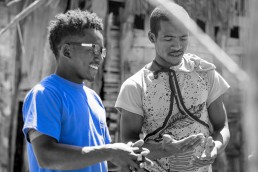
Commitment
C3 Madagascar is truly community centred as its name implies. We’re not a NGO which comes and goes to rural communities in order to implement top-down projects conceived in costly offices in cities by development personnel. We’re grassroots, located in the community and all of our ideas come from the community and complement the country’s overarching sustainable development goals.
We have developed successful environmental stewardship models with proven impact. Our job is to adapt, replicate and scale up what we do to reach more and more communities and areas of critical biological importance.
We only promise to deliver effective, sustainable and impactful conservation and development at the best possible price. The reason we can deliver at much lower cost than most NGOs is that we are locally-based, locally-run and have hundreds of community volunteers, well-researched suppliers and a policy of zero or minimal waste.
The international community has to admit that conservation has not been successful to date, we are still losing hundreds of species and swathes of habitat each year. With limited funds and time, we must shift our paradigm away from neo-colonial conservation approaches and waiting for data to inform decisions, instead we need to capacitate communities to manage and monitor key biodiversity areas with their own drive and commitment before it is too late.
It is also time for donors to take a good hard look at value for money when it comes to future conservation investments and move away from an approach which has historically supported short-lived outcomes with high administrative cost and unfortunately led to corruption and external dependence of local institutions.
Achievements
C3 Madagascar has:
Designed marine conservation modules for the national curriculum;
Facilitated community creation of Locally Managed Marine Areas (LMMAs) in 3 key biodiversity areas; and
Created the national environmental leaders network, TANOMAFI, which coordinates all approaches to youth engagement in conservation and sharing innovative pedagogic resources.
22
hectares of mangrove area restored
100
TANOMAFI members
116
schools impacted
385
fishers trained in monitoring and sustainably managing small-scale fisheries
500
feet of reforestation planted with children
7,000
fishing communities impacted (estimated)
26,750
mangrove propagules planted
30,000
school children with increased knowledge on marine biodiversity and climate change across the north of Madagascar
Over 30,000
people impacted
300,000
hectares of marine area impacted
—
Contact
C3 MadagascarLot II Y 30Bis ABA Andrefan'Antanimora,
Antananarivo 101, Madagascar
C3 Madagascar (CONSERVATION CENTREE SUR LA COMMUNAUTE C3 MADAGASCAR), in accordance with Article No. 5 of Ordinance No. 60133, is registered as a non-profit organization in Madagascar under the Direction of the Territorial Administration of Antananarivo with Registration No. 1206/14-MID/SG/DGAT/DIRAT/ANT/ASS.
C3 Philippines
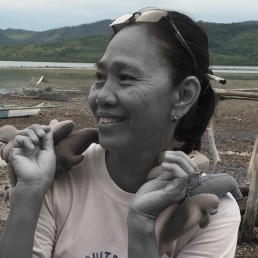
It is a big deal to us, C3 Philippines’s role in providing knowledge through meetings and trainings, particularly in taking care of our oceans and giving importance to the rights of every woman. As members of the Women of the Tagbanua, it was a big change within the entire community of Calawit that we were given the opportunity to recognize our abilities, as women, to oversee a part of our ancestral waters.
ROSITA A. EGUIA
Chairperson
Calawit Women-Managed Area
Management Council
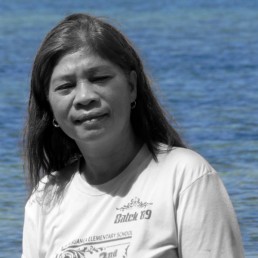
I did not really know anything about caring for and conserving aquatic resources. I did not care—we would simply go out to sea to fish. It never occurred to me that scarcity of fish was happening, but my realization began when I was invited to a meeting in our area, headed by C3 Philippines, to discuss the creation of a Marine Protected Area and its benefits. This was the beginning, and I continued until I felt in my heart the work I was doing; and I want to continue learning and growing so that I can share my knowledge with others.
EMMA M. SEGARINO
Chairperson
Ocam-Ocam Women-Managed Area
Management Council
About
C3 Philippines established its first field station in the Calamianes islands in 2011, focusing on conserving one of the last strongholds of the endangered dugong and is recognised as the national lead agency for research and management of the species.
Dugongs were spotted regularly by marine tour operators but accidental entanglement in fishing gear including fish traps and seaweed aquaculture lines was occurring, threatening to plunge the population into irreversible decline. Since this time C3 has successfully implemented a community-run dugong and seagrass conservation programme which involves local fishers enforcing bans on illegal fishing gear, assisting with Marine Protected Area management and monitoring and feeding back information on dugong sightings to the NGO. The programme involves all stakeholders; Local Government Units, the Department for Environment and Natural Resources, traditional owners, universities and the private sector.
Using its hugely successful environmental stewardship model, C3 has launched successful enterprises linked to dugong conservation, which generate an income and deliver capacity building for employment for women, LGBT and unemployed youth.
C3 employs a wide range of scientific techniques; land-based surveys, underwater surveys and the use of Unmanned Aerial Devices in monitoring the dugong population around the Calamianes islands to ensure it continues to grow and adapt in the face of increasing development in the region. C3 now has further offices in Taytay and Puerto Princesa, extending its successful community coastal management programmes across the entire province of Palawan, the Philippines’ last frontier for biodiversity.
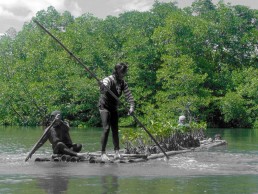
Commitment
C3 Philippines is truly community centred as its name implies. We’re not a NGO which comes and goes to rural communities in order to implement top-down projects conceived in costly offices in cities by development personnel. We’re grassroots, located in the community and all of our ideas come from the community and complement the country’s overarching sustainable development goals.
We have developed successful environmental stewardship models with proven impact. Our job is to adapt, replicate and upscale what we do to reach more and more communities and areas of critical biological importance.
We only promise to deliver effective, sustainable and impactful conservation and development at the best possible price. We can deliver at much lower cost than most NGOs because we are locally-based, locally-run and have hundreds of community volunteers, well-researched suppliers, and a policy of zero or minimal waste.
The international community must admit that conservation has not been successful to date. We are still losing hundreds of species and swathes of habitat each year. With limited funds and time, we must shift our paradigm away from neocolonial conservation approaches and waiting for data to inform decisions. Instead, we need to capacitate communities to manage and monitor key biodiversity areas with their own drive and commitment before it is too late.
It is also time for donors to take a good, hard look at value for money when it comes to future conservation investments. We must move away from an approach that historically supported short-lived outcomes with high administrative cost–one that, unfortunately, led to corruption and the external dependence of local institutions.
10
partner indigenous people communities
29
policies and agreements supported
30
community watch reporters
57
partner barangays
67
Local Monitoring Team members
135
Community Savings (COMSCA) members
230
Management Bodies members
230
PEER Educators (youth, women, & men)
1,084
fisher beneficiaries
1,500
Peoples’ Organization members
3,000
hectares mangrove forest rehabilitated
5714.60
hectares total of Local Conservation Areas (LCAs)
5,967
registered fishers
15,068
hectares total area protected by MPAs and WMAs
Contact C3 Philippines
Busuanga OfficeSalvacion, Busuanga, Palawan, 5317 Philippines
Taytay Field OfficePurok 6 San Lorenzo, PoblacionTaytay, Palawan, 5312 Philippines
C3 Philippines (C3PHILIPPINES INC.), in accordance with the Corporation Code of the Philippines, is registered as a non-profit organization in the Philippines under the Securities and Exchange Commission with Company Registration No. CN201115227.

